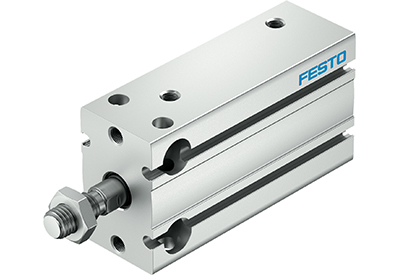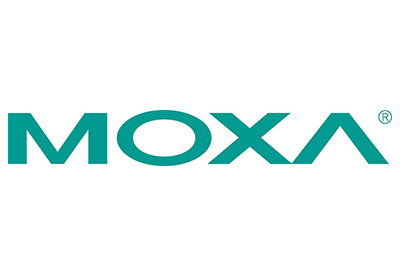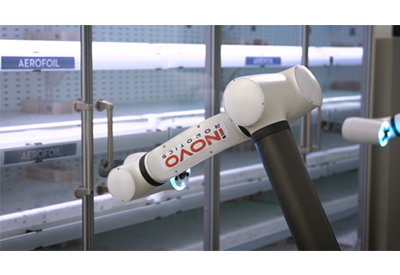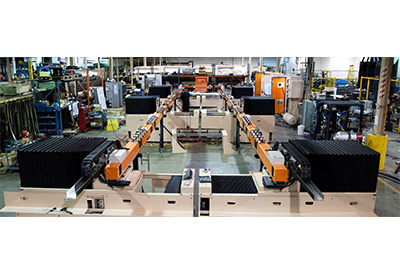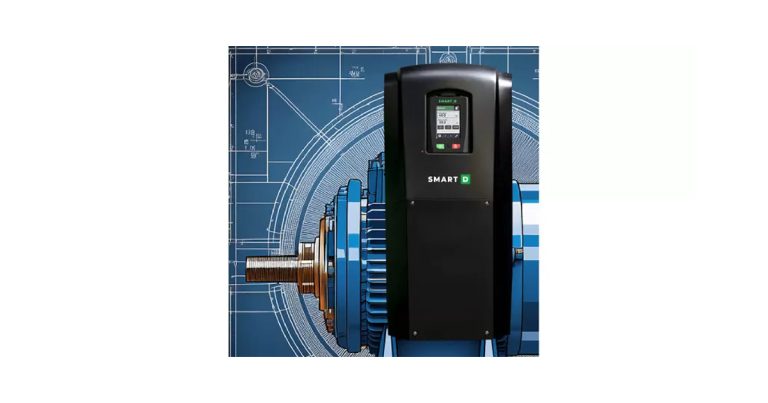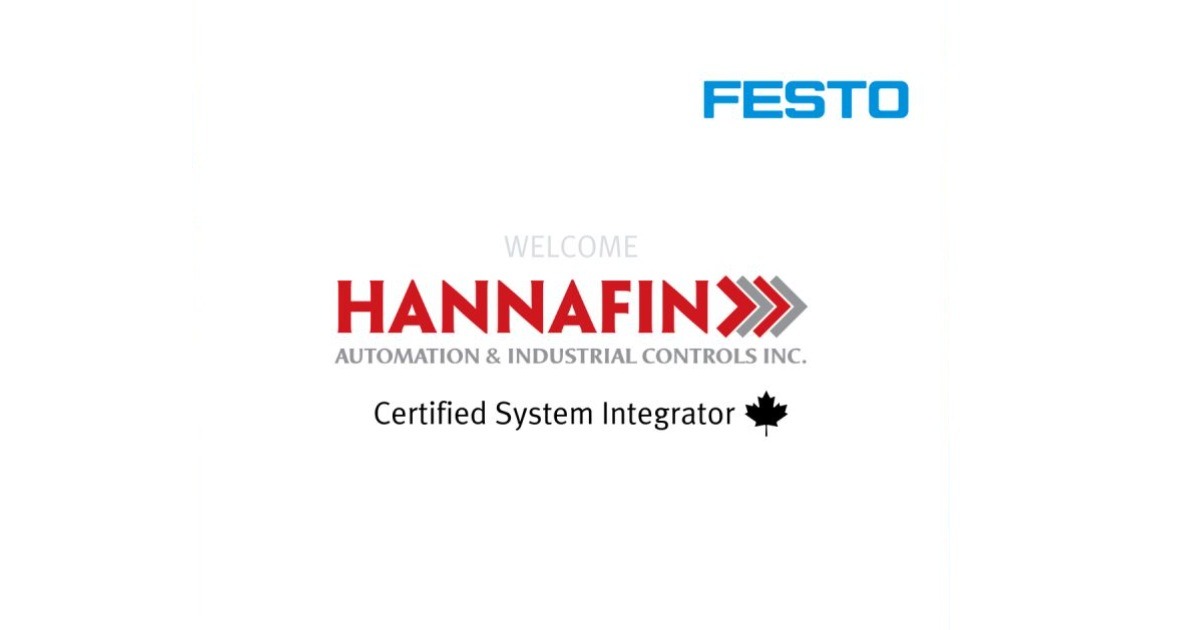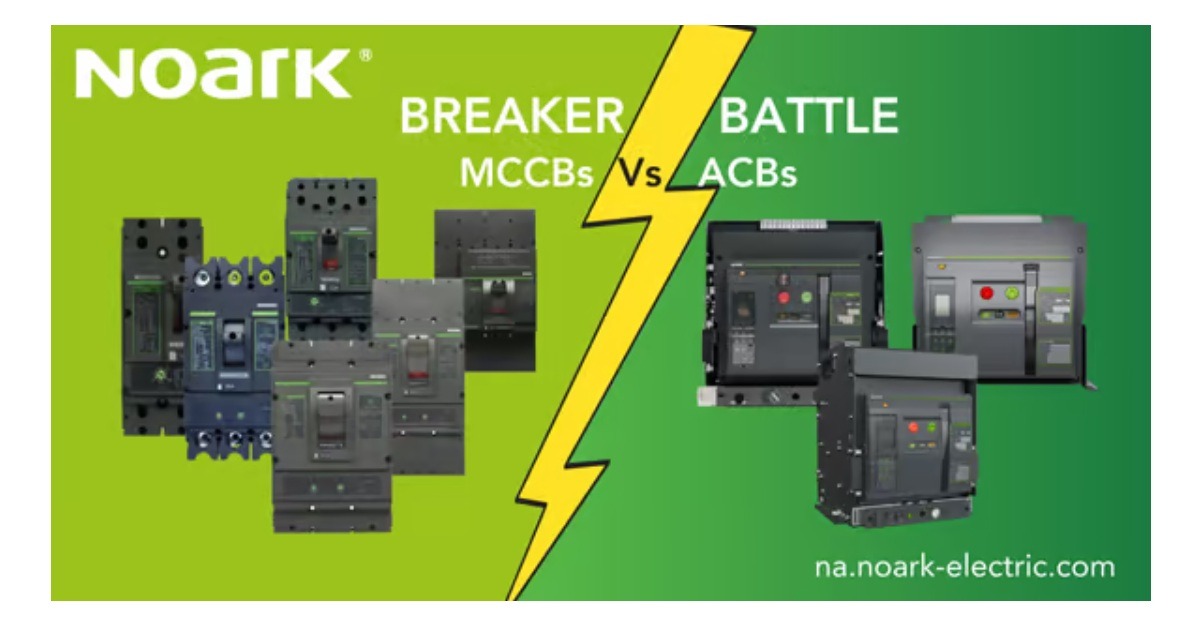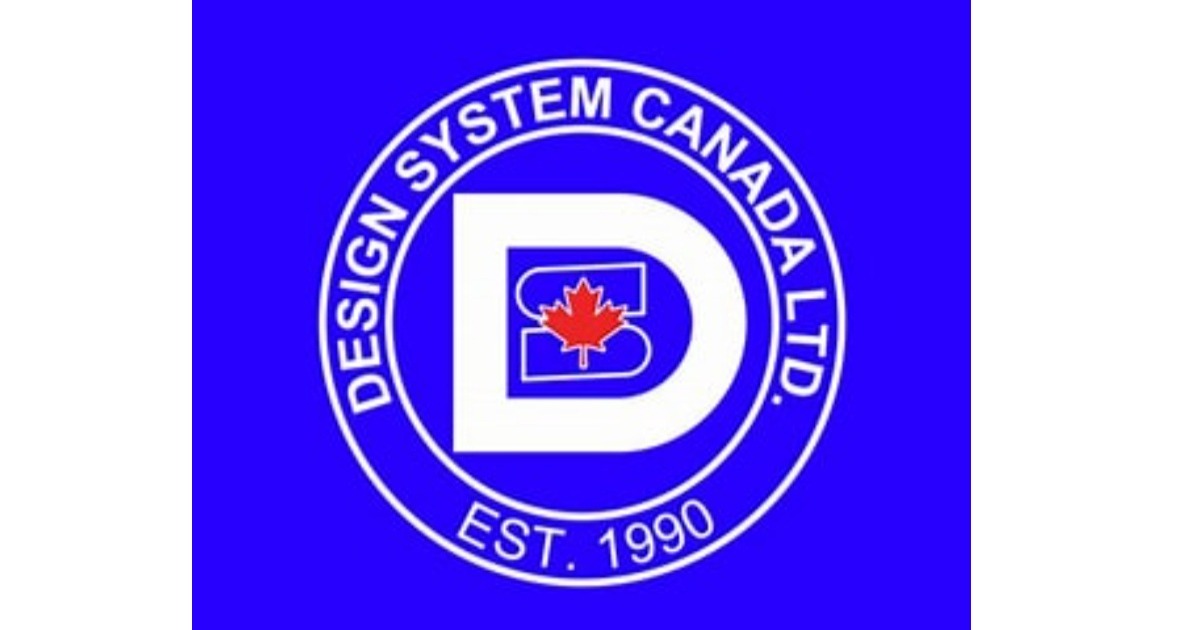Industrial Transformation
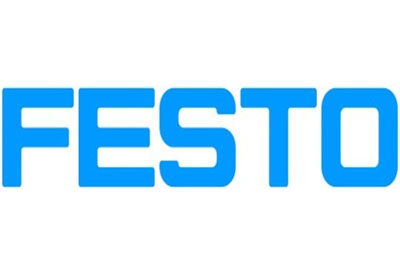
July 9, 2020
The current corona pandemic shows clearly the importance of digital transformation and Industrie 4.0. Just like Festo, thousands of companies have sent their employees to the home office. In this way, many areas of the economy have been able to stay afloat because digitalisation has advanced extensively in the private sphere. But many jobs in production are location-bound. But the basic principles of Industrie 4.0 will make mobile working possible in industrial production of the future. The Corona crisis has driven digitalisation worldwide.
“We are feeling Corona very clearly through changes in our online business. This trend will be a lasting, long-term one: a sustained shift to digital channels and offerings. We realise more than ever that in times of crisis it is crucial to provide our customers with comprehensive virtual support”, said Oliver Jung, Chairman of the Management Board. Therefore, Festo provided customers and partners with a digital collaboration platform. This platform contains all engineering tools, the online shop, access to all Festo services or th digital maintenance manager Smartenance. This enables Festo to offer its customers and partners consistent touchpoints in the virtual world, it is called Digital Customer Journey.
Many companies were suddenly confronted with a completely different demand behaviour. Faster availability or suddenly much higher quantities of certain products required companies to be as flexible as possible when converting their production. The digitalisation of automation technology provides a remedy. Components that are intelligently networked independently, self-configuring and thus plug and produce capable, enable the systems to meet changing requirements faster. The necessary data and information is synchronised via cloud services and can be accessed at any time. In Festo’s global production network, the plants are networked with each other and are in constant exchange. “Within the network, we have largely been able to compensate for production bottlenecks, for example when plant shutdowns ordered by the authorities occur. This requires a stable and powerful IT infrastructure that can cope with modern possibilities such as cloud data storage, so that all data is available worldwide in near real-time”, said Dr Ansgar Kriwet, Member of the Management Board Sales.
The trend towards intelligently networked production is proving to be crisis-proof and sustainable. A prerequisite for this is the virtualisation of products, machines and systems, so that factory workers will also be able to control “their” machine from their home office. To do this, the machines and systems require a digital twin that is equipped with the same functions as its real counterpart. Embedded sensor technology enriches the digital twin with process data and we gain insight into the internal condition of the machines. These virtual twins of machinery, systems and value flows have another great advantage: The processes, parameterisations and configurations can be acted out in these computer-generated simulations without the need to intervene in existing production processes. This saves costs and time – which is crucial for countries with a high labour content in manufacturing costs, so that they can remain competitive on the global market.
Platform Industrie 4.0
The central driver of the digital transformation is the “Platform Industrie 4.0”, which supports German companies in implementing Industrie 4.0 with practical examples, information offerings and recommendations for action. The numerous international cooperations of the platform underline its strong role in the international Industrie 4.0 debate. Dr Frank Melzer, Member of the Management Board for Product and Technology Management, is head of the Industrie 4.0 Platform Steering Committee: “Our mission statement 2030 with its three focal points sovereignty, interoperability and sustainability provides an excellent framework for action to emerge from the crisis stronger and to expand our global pioneering role in open, digital ecosystems. The Industrie 4.0 platform is a reliable partner for the necessary digital change and supports the robust and sustainable further development of German and European industry.”
AI is the key to the world of tomorrow
With AI there is further added value for Festo customers and also for Festo itself. “Artificial intelligence can be used to make predictions about possible failures of individual components or optimisation potential available to the machines operator. In combination with human experience, we have already been able to achieve significant efficiency improvements in our own plants“, said Dr Ansgar Kriwet. Artificial intelligence is characterised by its self-learning ability. The more data available, the better the predictions. As a result, downtimes are reduced and expensive rejects are cut down.
Making good use of AI
To generate added value and increase efficiency with the methods from the algorithmic toolbox, use cases must be precisely defined. Satisfactory results are only possible if the data are strategically prestructured and are available in sufficient quantity. “We have taken a close look at quality assurance with AI in a production process at our own factories and have come to the conclusion that the big data approach from the consumer market is not successful in industry. We only managed to significantly increase efficiency once we united the expertise of the machine operators with the appropriate statistical methods of AI”, said Oliver Jung.
Festo is currently focusing above all on AI assessments “on edge”, in other words directly on the component, or on location within a production network. This saves costs, ensures real-time assessments and avoids latencies. With the Festo IoT Gateway, existing production plants can be made AI-capable without major intervention. Algorithms and models can be updated directly on a device without modifying the PLC, independently of the computer capacity or the free resources of the PLC.
Two years ago, Festo acquired Resolto Informatik GmbH from Herford, Germany. Last year, Resolto AI technology was implemented on products such as the Festo IoT gateway CPX. This year, Resolto is now also moving significantly closer to the digital business, i.e. the development of AI-based software and Industrie 4.0 value-added services.
From mechanical to smart products
“In order to be able to exploit the opportunities and advantages of Industrie 4.0 described at the beginning, we need mechanically excellent and additionally smart products at the field level that have integrated computing power and communication capabilities. We have therefore combined the outstanding mechanical properties of piezo valves with a digitally controlled variety of functions in a unique product, the Festo Motion Terminal”, said Dr Ansgar Kriwet. The functions of the valve terminal can be controlled via App so that different tasks can be performed with one and the same hardware. “The Festo Motion Terminal combines standard pneumatics, electronics and software control to create intelligent technology. This ranges from simple directional control valves to complex motion tasks, status monitoring, variable positioning, reduced energy consumption and significantly fewer components that need to be installed. With the Festo Motion Terminal, we open up completely new solution areas for our customers”, said Dr Ansgar Kriwet.
Digitalisation saves resources
Environmentally friendly production is increasingly becoming a competitive factor. Energy and resource efficiency are more than just a question of profitability for manufacturing companies today. Digitalisation is an important pioneer in the transformation of industrial production to be climate-neutral. Sensors provide the data that make the energy consumption of a production process transparent in the first step.
For more than 15 years, Festo has been offering the holistic Festo Energy Saving Service for system operation, which checks the design and operation of the systems and identifies all weak points and optimisation options in a holistic manner. This enables significant savings to be achieved.
The Festo E2M energy efficiency module, for example, is a combination of maintenance device, sensor technology and fieldbus communication. It automatically detects leaks and automatically monitors and controls compressed air consumption.
Lifelong learning
As the innovation leader in factory and process automation, Festo always focuses on people in addition to technical solutions and sees the role of technical education and training as crucial both to technological innovation and to promotion of the labour market. With digitalisation, the competence required in both existing and new professions will continue to change, and with it also the requirements on education and training. Festo Didactic currently offers new digital learning tools and learning formats which Festo uses for its own employees and offers its customers on digital learning platforms.

